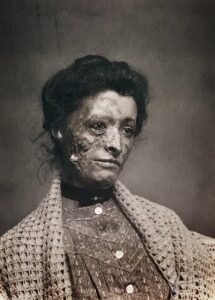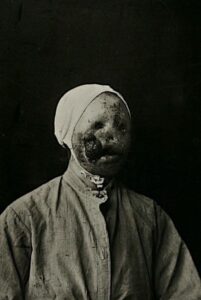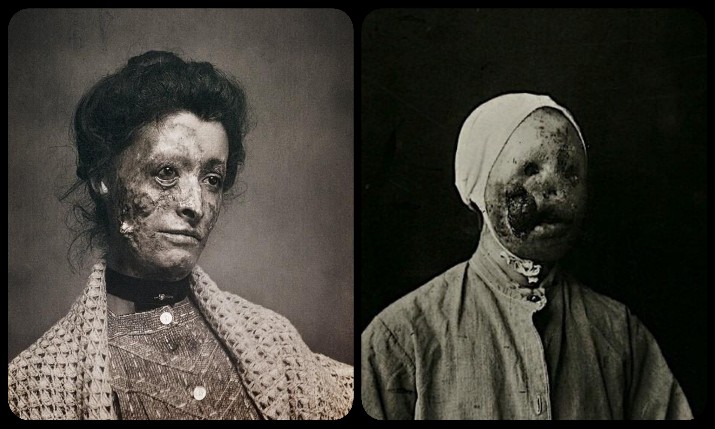The sweet side of the middle age wasn’t without its challenges. Italy played a very important role during the middle age. In the 15th century. The southern-city state of Naples, faced a disaster that no one could have ever imagined. In the year 1495, Naples was attacked by a deadly syphilis disease that left its victims infected down to the bone yet they remained alive for a period of time looking half dead. These infected victims wondered the streets of various states, they were called “The Renaissance Zombies”.
Let me take you back to August 1494, when a man known as King Charles VII was the highest authority in France. This king decided to do some invasions across Italy, this war became the Italian Wars. King Charles had over 30,000 soldiers and a very large artillery train.
His army comprised of mercenaries from all over the European continent. Back then, the Swiss, Italians, Spanish and Gascons were willing to sell their weapons to the highest bidder. King Charles’s target was Naples Italy, which he wanted to use as a central point for his Crusading agenda. Back then, people would only follow the strongest armies where they felt most protected. Due to this fact, about 800 camp followers joined Charles and they provided non-military services such as medics, cooks and even pr*stitutes.

CC: Wikipedia
His army was led by a man known as General Louis II de la Tremoille. They came across some form of resistance in each city they crossed on their way to Naples. The French army crushed all their resistance with little or no stress. February 1495 was the month they finally took over Naples after over 6 months of fighting their way through Italy. Charles’s army were ready to have some fun, so they did a lot of drinking and any other thing you could think of. From your little idea of the olden days, you are sure to have a clear picture of that their parties looked like back then.
After partying too hard, in the following days, it was very evident that a terrible disease was sweeping through the city of Naples. The people back then called it “the French Disease”, putting the blame on their French invaders. But it wasn’t really about the French, the blame involved all of Europe considering the fact that the French army comprised of soldiers from different nationalities of Europe. According to scholars who have carried out some research on this outbreak, they feel that the disease may be a variant of bacterial venereal bacterial disease which exists till date.

Cc: Wikipedia
Back then, they didn’t have a deep knowledge of medicine like we do today. But if we go by their records, then Syphilis today isn’t like it used to be in the past. In the 15th century, Syphilis had a higher mortality rate and it was more contagious than it is today. Back then, the victims had not developed a better immune system that could resist the disease more, so they were more vulnerable and the symptoms were deadly.
Whether it is the deadly one of old or the syphilis of today, the disease has different stages. First they contracted the disease from pr*stitiutes, mind you, there was no c*ndoms back then. After contracting this deadly disease, victims first experience gen*tal ulcers but it didn’t hurt yet.

It doesn’t take long before they started having a bad fever and then the rashes started coming along with joint and muscle pain. This usually lasted for some weeks or months while the infected victim keeps drinking and sleeping with more pr*stitutes. This was 400 years before the solution to this deadly disease was discovered, so you can imagine how vulnerable they were back then.
The second stage was a lot worse than the first, large sores would come out all over the victims body.These sores were very painful, they looked bad and the smell was terrible. These sores kept growing and turned into bad ulcers as time went on. The victims bones deteriorated before their very eyes. Their joint and muscle pain got worse at this point, especially at night. Unfortunately, the infection would extend to their face, mouth and throat which eventually led to death.
This disease tortured its victims slowly, it could take years to k*ll them. Back then, there were many infected Zombie-looking victims walking and crawling the streets of Naples, Italy. They didn’t look nice as their faces were rotten and their bones exposed. This is the closest you could get to being a zombie.

The French army overstayed their welcome soon enough. The Italians put up an army which they used to expel the French King and his soldiers from their city. The French soldiers were too weak to fight because they were mostly infected with syphilis. The mercenaries returned to their homes which was scattered across Europe, taking syphilis along with them. This was how the deadly disease made its way to all the corners of Europe. The disease spread across Germany, Scotland, England, Spain, Russia, Poland, Greece, Hungary and many other parts of Europe. By the 1500s,it had spread to Asia, the middle east and Africa.
The debate is stll unclear about where this disease came from. They believe that it actually originated as a lesser disease but later mutated into something more deadly. Old medics were not really thorough in their diagnosis, so the disease might have been hiding in plain sight all along. The renaissance victims blamed each other especially the French, they called it “the French disease”, and even the French blamed their foreign mercenaries.

Italians called it “morbus Gallicus,” or the “French disease, since they believed that it arrived from the French Military despite the fact that the French army constituted of people from different nationalities including Italians. The Scots called it “grandgore,” derived from French terminology. But the Russians had a different idea, they named it the “Polish disease,” while the Polish and Persians preferred to call it the “Turkish disease.”
The Turks on the other hand called it the “Christian disease,” and the Tahitians called it the “British disease,” the Indians named it the “Portuguese disease,” and the Japanese blamed the Chinese, calling it the “Chinese pox”.
The white race all over the world were arguing over whose fault the syphilis was but they failed to notice that the disease was settling in. After the first few years of its arrival, the disease relaxed a bit and the symptoms became less critical. This disease was still deadly and the cure wouldn’t be discovered until the 19th century.
Even though the disease was less severe in later years, the dementia, sores and pain didn’t go away. By the 1500s, people had discovered a way to make infected victims look more pleasing to the eyes using make up and scented wig to cover the hair loss. This and many more things you didn’t know about history is what we bring to you here. Feel free to explore our website.
